#class and gender asoiaf
Explore tagged Tumblr posts
Text
I don’t know how, but my response to nightswatchrebel’s question in the reblogs is not here.
So this was my answer:
A “bastard” is understood a person born to parents who weren’t married to each other, yes? If Jon Snow’s parents weren’t married, he is a bastard/illegitimate. He is not supposed to be able to inherit lands, etc.
In both the canon lore/Fire and Blood (since F&B is telling the canon events even if told by many biased sources) Rhaenyra is not married to Harwin Strong, and her first 3 kids are most definitely Harwin’s biological kids, not Laenor’s.
ANSWER:
So yeah, her kids would be considered bastards by many in the Faith and many people of Westeros since her and Harwin never married. Because they either/both think that bastardry and illegitimacy is an inherent fact or they want to use Rhaenyra’s gender and extramarital sex for their own political gain.
But bastardry is a legal existence, not a biological one though (see below about “But because:”)
And yes, Aemond/Alicent saying they are bastards should be treated as speaking treason because they’d be going against the king’s word AND calling the heir treasonous AND denying the then-affirmed status of the heirs of the heir.
That’s the point of Rhaenyra using treason against them in episode 7/the canon scene of Aemond getting his eye put out. Rhaenyra heard Alicent say that Lucerys should get his eye taken for “justice” and Rhaenyra responded by declaring that Aemond heard this treasonous talk of bastards (because Rhaenyra would then be accused of lying to the king…which she didn’t, Viserys knows but he can’t let others know he knows) from somewhere. Knowing that treason trumps even a prince losing an eye, Rhaenyra does this to protect her son.
In Westeros a king/monarch is the only one who can legitimize someone illegitimate and they must do it through a royal decree (Corlys has to request Rhaenyra to legitimize his “grandsons” so they can officially/unobstructed-ly inherit Driftmark after he dies), then Viserys I accepting the boys – many argue – is him legitimizing and acknowledging them and making them his daughter’s heirs/his heirs.
But this is regarding men fathering bastards. Not women. Why? Because women aren’t allowed to be as free to have bastards and are punished for it, for not staying faithful to their spouse. Her kid is an indication of her “looseness” and “betrayal” (while a man birthing any sort of child is “not a big deal”, even though he is the one supposed to leave behind house inheritances). The rules regard the event that man fathers a bastard because only men are openly allowed to be a bastard’s parent because men are the ones with the custom/legal power over women.
Others would argue that it doesn’t count because Viserys didn’t openly legitimize them. That Viserys is just “acknowledging” them and not “legitimizing” them since he didn’t ever make a recognized royal decree that acknowledged that rhaenyra birthed children not her husbands, that they were ever bastards in the first place:
At any point, the biological father of a bastard may acknowledge him and bring him formally into his house. […] An acknowledged bastard might even be considered to inherit a seat when no direct heirs can be found.
Acknowledging is when the father (because he is head of house and has the male privilege) to take in, literally, a child he sired. Women don’t get to do this, even though a child by a woman is inherently the same as a child by a man.
It is a game, bastardry, of admitting what you choose and can admit or reveal depending on circumstance.
But because:
A) How can you truly expose bastardry when it is not an inborn thing and testable? It then becomes a thing of rumors, acceptance and believability, not truth.
B) Viserys, the king and head of house/grandfather, says they are to inherit (and has kept shit under wraps), they get to inherit. The boys would absolutely, unequivocally have to be exposed as not Laenor’s kids for Alicent to officially get any “legitimate” way to prevent their inheriting the throne.
C) Succession at any level (royal and noble) is contradictory:
The bastard-born have few rights under law and custom. When it comes to rights of inheritance, there are no clear cut laws.
A bastard may inherit if the father has no other trueborn children nor any other direct heirs to follow him. For example, in 299 AC, following the deaths of Lord Halys Hornwood and his trueborn son, Daryn, Halys’s natural son Larence Snow is considered as a potential heir by House Hornwoods overlords, House Stark. However, in order to inherit or be installed as an heir, the bastard-born child will first have to be legitimized by a royal decree.
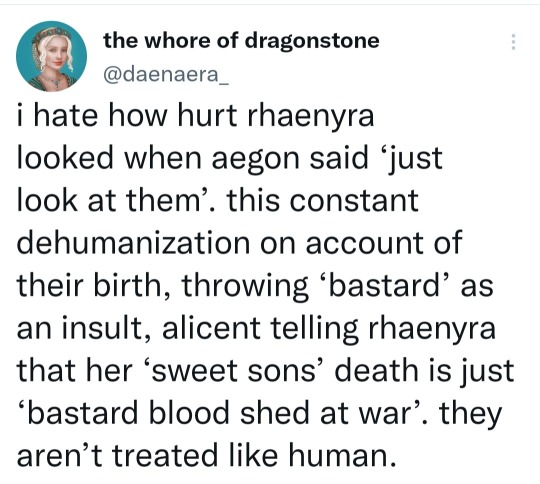
I support every devastation coming for the green's. They think their blood is superior, let it spread let us all bask in its glory.
People who stupidly claim rhaenyra should declare her sons as illegitimate then legitimise them are either dumb or don't realise they're watching a show set in middle ages. A man eg-corlys in the same story, can do that for a woman to do that would mean execution for her children and herself, viserys did a lot of things wrong but ignoring his daughter's kids parentage was the right thing.
#westerosi bastards#westerosi society#westerosi nobility#westerosi culture#legitmization vs acknowledgement#legitimization of bastards#acknowledgement of bastards#westeros succession#succession in westeros#class and gender asoiaf#westerosi sexism#westerosi misogyny#asoiaf comment#asoiaf
392 notes
·
View notes
Text
I'm not exactly sure how I want to phrase this yet, but I think a lot of the utterly weird takes I see sometimes float by me on our cursed blue hellsite (esp when it comes to mdzscql fandom) is coming from a refusal to meet the genre where it's at.
Like, why are we trying to interrogate classism in MDZS society, MDZS is a romance, the societal worldbuilding is just enough to support some general big ideas and the provide context for the romance. We can't get ANY kind of read on general classim/sexism/anything else from. this source material. if you think you can get granular when your sample size of characters from various social and gender strata are so small and we don't know how the vast majority of people in here live you are making stuff up.
Like, meet the story where it's at: it's a romance novel.
#like I need to say that romance novels are not inherently a lesser form of media#nor is like#the lack of ability to interrogate it for gender roles/class/whatever else a knock *against* it#this is just like the naruto fandom trying to say it's “plot holes” for Kishimoto to not have like#explained the economic system of all the countries he has in his universe to the same detail of ASOIAF#like#in the story for 12 year olds?????#this is how I feel about people who go “MDZS society is CLEARLY sexist!!! They disdain Girl Heirs!”#pals we have like all of (2) alive women at the end of this book their names are Mianmian and Little Mianmian#“MDZS society was super classist” we meet no non-gentry people as actually significant characters#JGY doesn't count he became the chief cultivator and his whole deal is being related to JGS and what he deserves AS THE SON OF JGS#anyway#none of this post makes any sense anymore I'm just tired
144 notes
·
View notes
Note
Imo there is not enough Valyria content out there so I would LOVE to see your thoughts/headcanons on what the geography, city, fashion, etc. looked like
okay this ones a little difficult because even though Valyria is clearly inspired by Rome, I don't like roman (aka greek) architecture for them it just doesn't really fit to me. Honestly its hard to assign any real life inspo because the existence of dragons would have had some major impact on the society as a whole, architecture included
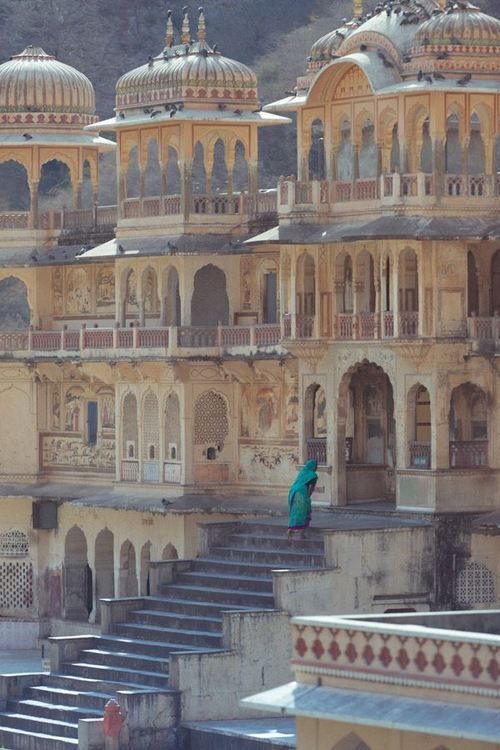
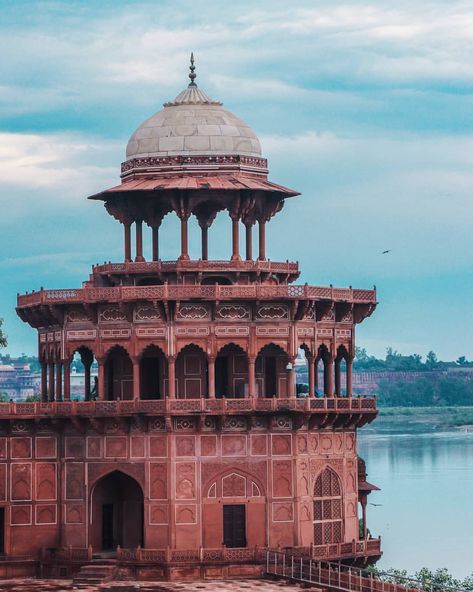
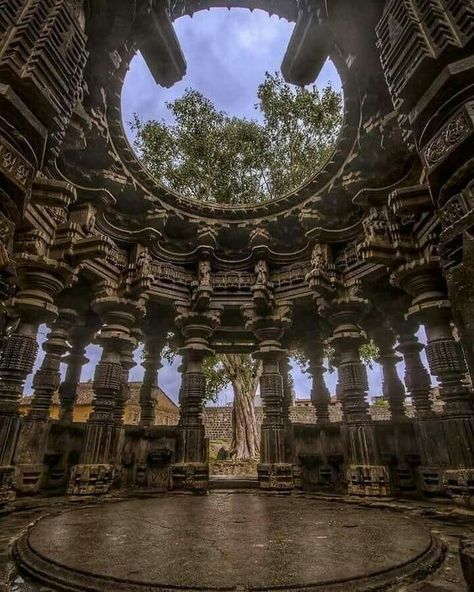
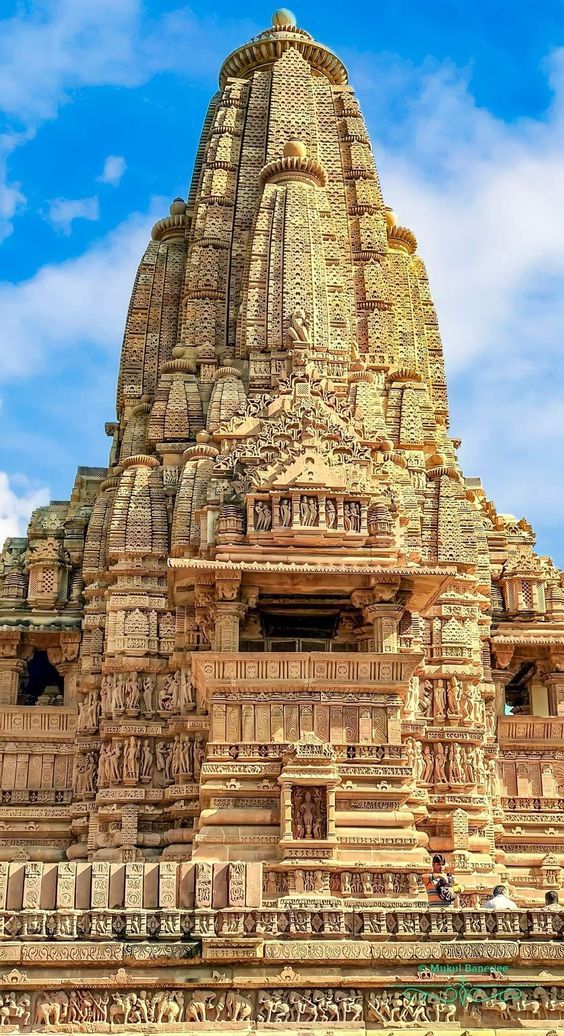
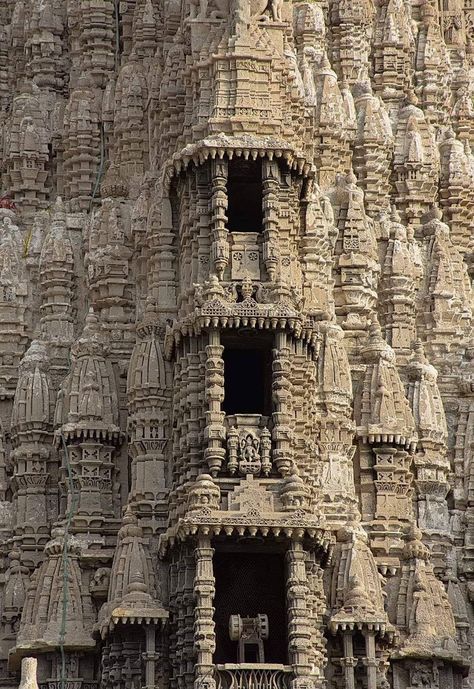
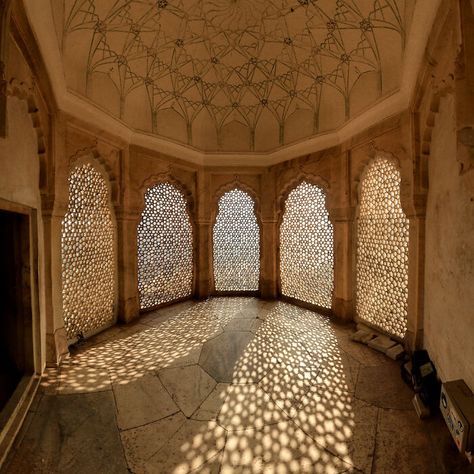
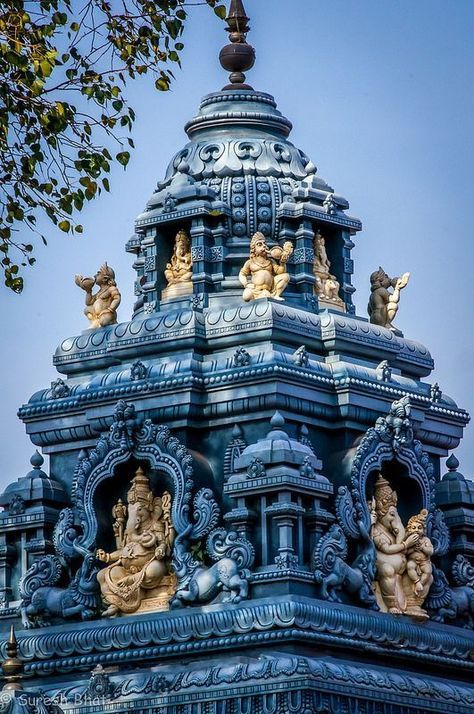

However, if I had to pick a type to ascribe to Old Valyria, my first choice would be a twist on Hindu architecture. I am absolutely obsessed with the sheer amount of details on the buildings (especially the Meenaskshi Temple at the bottom, everyone please go look at more pictures of it it's gorgeous). It's incredibly complex but also tends to be very symmetrical, the styles perfected over hundreds and hundreds of years. I also really love the idea of the spaces being open and well lit, it fits well.
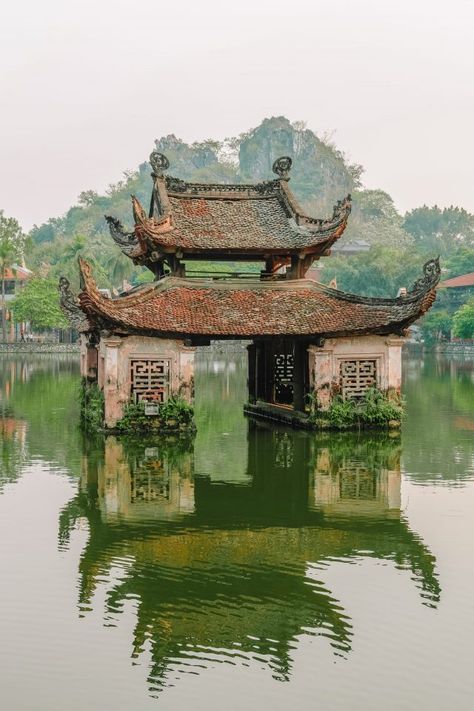
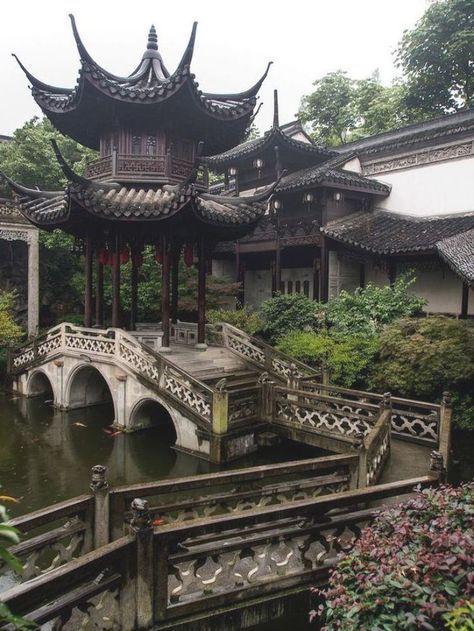
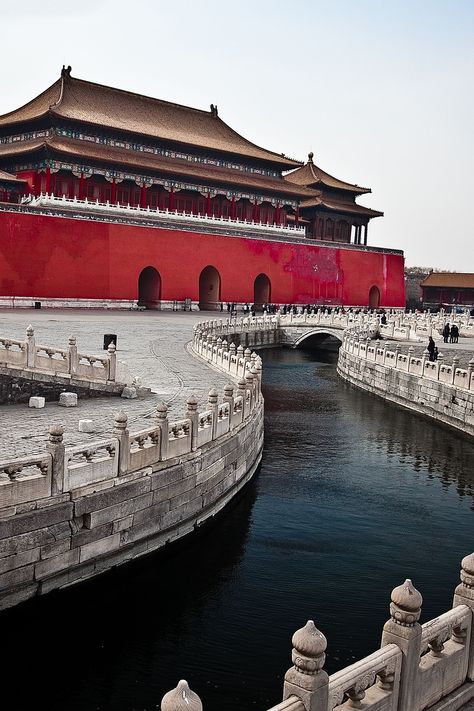

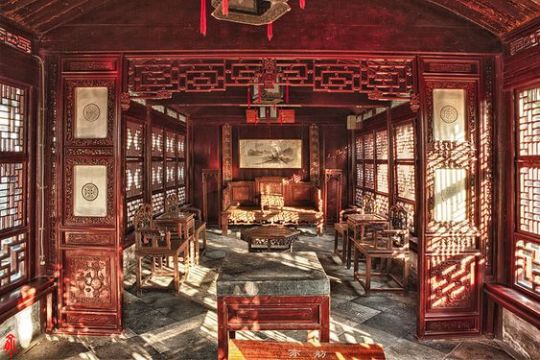

Another alternative is traditional Chinese architecture, with the added bonus of dragon motifs that are already there :D Another type of architecture with an intense focus on details, symmetry, and how the design of a space affects a person. Architecture is a reflection of where a society is in their development, and I find that this could be a good inspiration for Valyria, an advanced culture with the excess time and resources to build things like these.
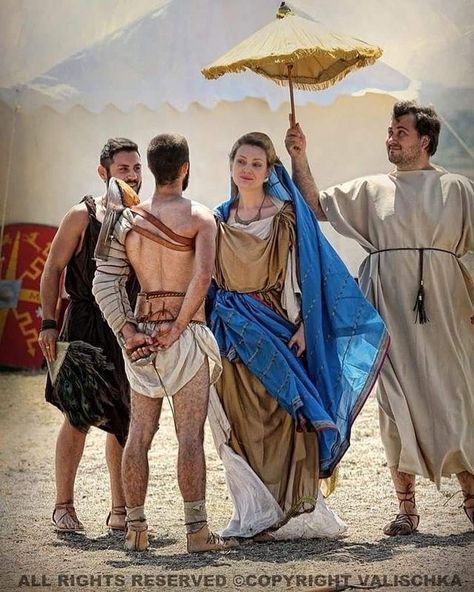
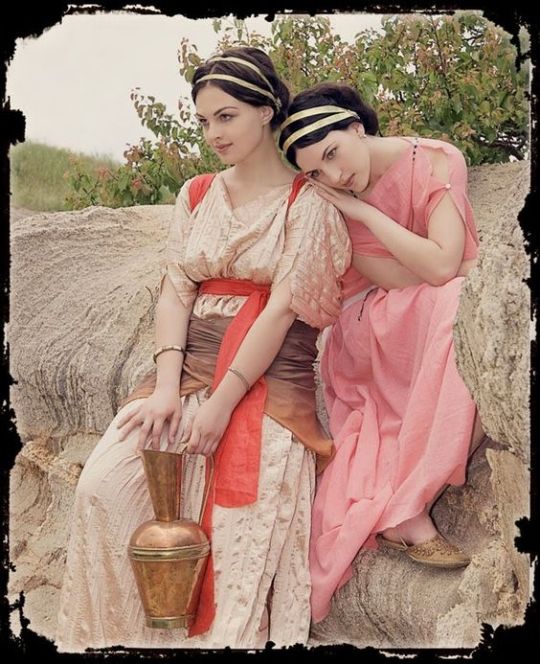
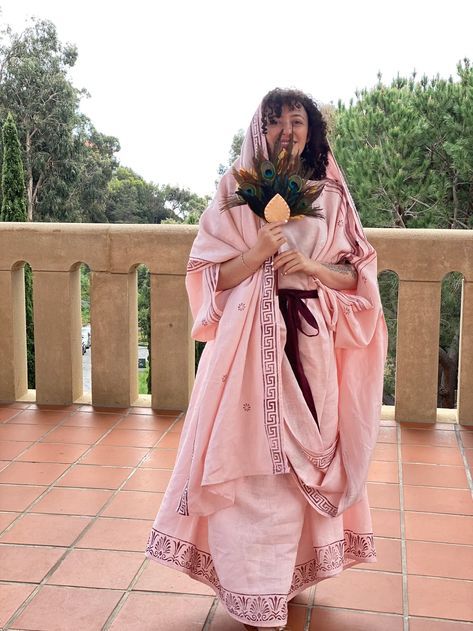
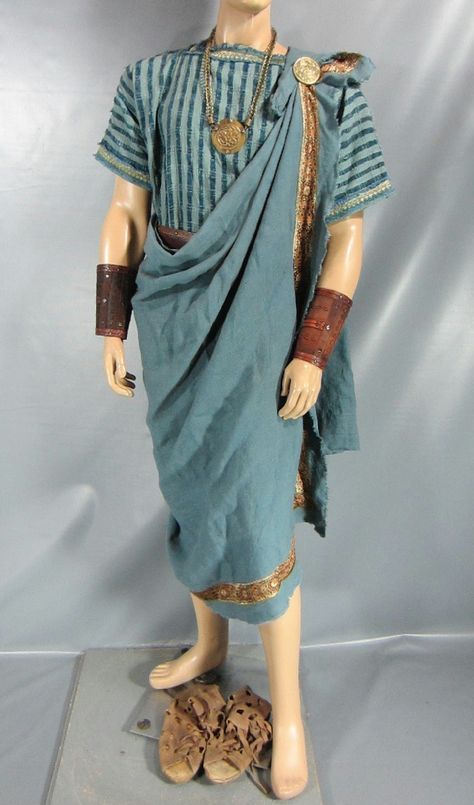
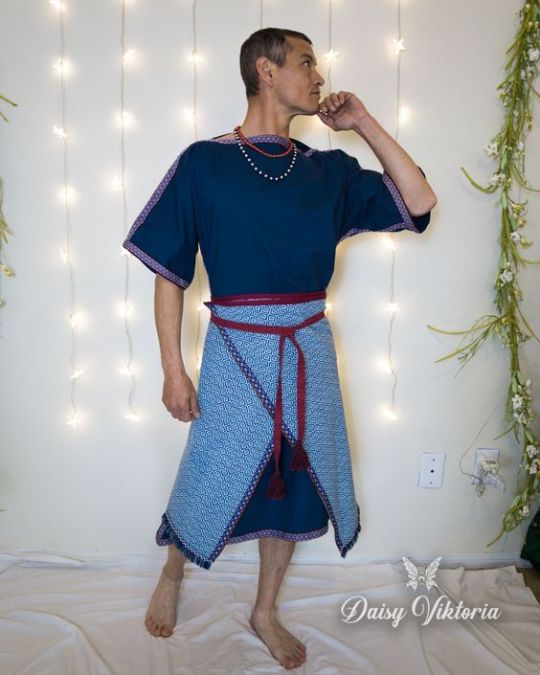
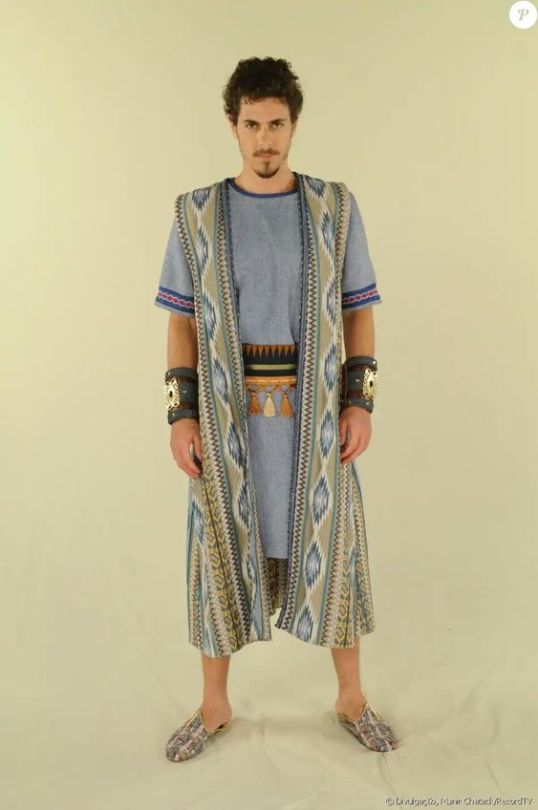
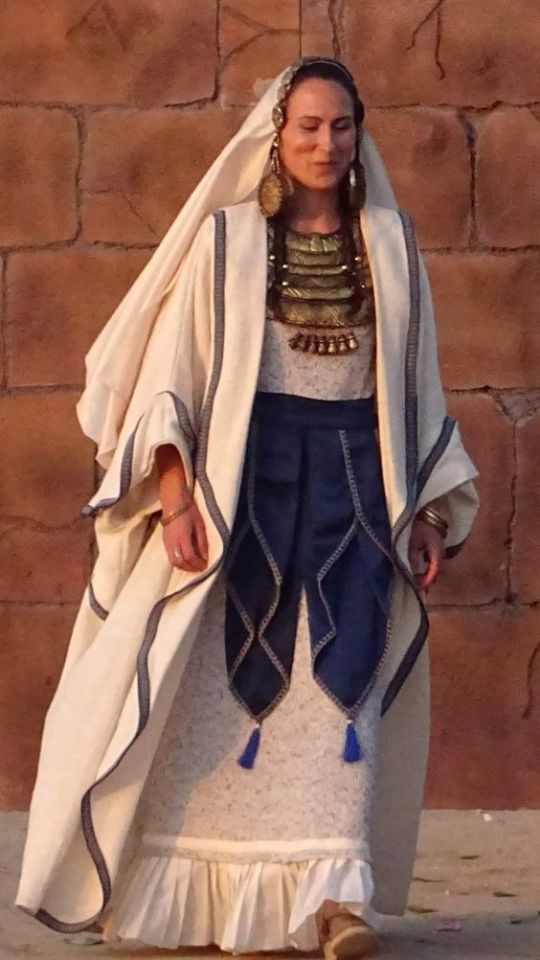
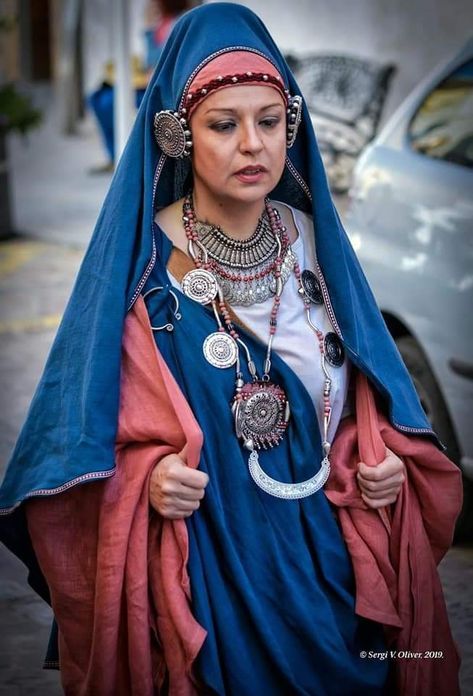
Woof okay clothing is all over the place I need to brainstorm and tighten my focus on different inspos (also I wish I could draw well so I can blend these styles properly but alas...anyways we ball). The main thing is mediterranean cultures I know that much. The Iberian Peninsula, Rome, Greece, the Minoans, Malta, Cyprus, etc etc all the ancient clothing and traditional costumes from around the Mediterranean Sea. Valyria was in a warmer, damper climate, meaning lots of loose fabric that could let air through but wouldn't weigh you down. Also doubling as shields from the sun. You get the gist I use this type of clothing all the time.
Okay Random Cultural Things Time
Art and literature? honestly really important because while yes this was a conquering civilization, they needed their exploits to live on in wall frescoes and written epics and dramatic pantomimes. I think they were literate, and probably spread written Valyrian to all the colonies, so that they were easily assimilated. People particularly fond of their dragons had pictures of them made and statues sculpted so that they would live on after their death.
Sports and entertainment also pretty big as well. Valyrians were a highly competitive people To Me so I think that riding, swimming, wrestling, racing, and other games were popular with the people, even those in the higher classes. Also fuck it I bet they raced their dragons. A really tall amphitheater where rich men lost money as they watched dragons circle around the ring. Or fight in midair, if the dragon riders were prisoners or sentenced to death.
As for religion, the Valyrians worshipped the gods that gave them dragons, but also tolerated the other faiths of the places the conquered, just in order to ease tensions (and because they had no dragons so why would they worship dragon gods). I like the idea of Roman household gods, with small altars in every home. Statues of the gods of the home, along with any gods a particular family might favor, along with ancestor veneration and dragon veneration. Dragon skulls and dragon masks on the walls baby!
#woah this was really long#spent my entire women and gender studies class doing this sorry Judith butler#asoiaf worldbuilding
92 notes
·
View notes
Text
love and light to everyone but if i see one more post that’s like “the point of asoiaf is that feudalism is BAD” i’m going to rip out my hair and start eating dirt and worms. like yes, it is bad. yes, monarchies are bad. yes so true it’s annoying when people ignore all of that and focus on who they think deserves the throne more. but that’s not the point—that is the premise? it’s the beginning of the exploration and deconstruction. functionally this system is rigid (specifically in terms of gender and class) and horrifically violent: so what it’s really like to live in it? to try to be a hero, a knight, to be a lady in a world where your body belongs to your family, your lord, your order? is it possible to be a good person in a hierarchal world like this, with such vast power imbalances woven throughout it and every relationship and interaction that you have informed by that? how do you navigate that imbalance in order to have meaningful relationships—can you every truly do it? and who decides what is good? how do you know if it’s truly right or it just felt right because it’s what you wanted to do? what about the people who have no name, no family, no order: what happens to them? don’t they matter? what if in a lifetime of looking the other way or actively causing others harm, you do a few things—maybe one thing—that’s objectively good: does it mean anything? does it matter, even if no one ever knows? what if the best thing you ever did broke every vow you made, every law that governs your society? how do you live with that dissonance?
what’s it like to be a ruler, to be a king or queen—is it possible to be a good one in such an unequal system? to wield power justly? who decides what is just? who decides who should rule? at which point does the amount of power someone can have cross the line into too much? is it when you stop trying to figure out how to use it correctly and worry only about how to keep it? if holding onto it costs you everything, your family and all your relationships, is it still worth it? what if having that much power available is necessary to the survival of your people, maybe even your world, but when it’s misused the carnage left behind is beyond articulation—is it still worth it? are the lives it saves worth the lives it took? how do you measure that? who carries the weight of that choice and how? how do you live with it? how do you go on living in a world that can be harsh and cruel and unfair, a world where your good intentions and your personhood seem to matter very little in the face of someone else’s greed or when compared to the yoke of your duty? and the questions never stop and the answers when and if they come are rarely easy, but the point is that you keep asking and keep trying because that’s what it means to be alive lol
#the ‘[whatever] is BAD’ pov is a totally understandable reaction to ppl fighting over the iron throne i do get that#but it’s SO reductive and especially since hotd aired i see it everywhere#and it’s like that’s not the point?? the point is… what are aragorn’s tax policies. u know?#also. it’s very much possible to recognize the flaws of the system and still feel frustrated for say rhaenyra or rhaenys or cersei#it’s correct to read this in the voice and cadence of jonathan frakes btw#asoiaf#txt
1K notes
·
View notes
Note
I am back to show my work via incredibly undercooked notes app essay i’ve had for a while. So I stand by the idea that the non-targaryens in fire and blood are more interesting in that watching the ways in which regular people have to twist themselves around to fit within this monarchical system run by decidendly alien incest blood curse practitioners is FASCINATING because really it is all about integrating yourself within the paradigm of dragon-magic-assisted state violence.
Which takes us to big point: fundamentally Criston Cole and Nettles are both answers to this question that the narrative asks: “What happens when the lowborn are elevated to positions of historical consequence and societal power because of their usefulness in war/capability to commit violence?”
Initially, there’s there’s a lot of similarities in how they respond to that question: ultimately, this idea of class elevation means you have to follow all of the societal rules perfectly without any of the exceptions made for Targaryens because unlike them, you have everything to lose. (see: criston being rightfully concerned his affair with rhaenyra will lead to his execution vs. nettles almost getting executed due to rumored getting groomed by daemon) The operative difference between those two examples being the insertion of gender into that power dynamic. Nettles has to fight classism AND misogyny to the extent that she gets NO acceptable way to be, and has to flee the country.
The aspect of being elevated from lowborn status also carries with it the implication that no matter how far you rise you still belong to whoever elevated you there in the first place before you belong to yourself (Criston fully personally belonging to Rhaenyra who named him and then Alicent who kept them around/ Nettles belonging to Jace who started the dragonseed effort and then Daemon who decided she should follow him around personally for uh. reasons.)
I’m about to mix show and book canon so feel free to tell me to kill my self if you’re from dragon twitter and you hate that shit. BUT. there’s also the parallel of both being products of ongoing cycles of violence (criston’s dornish mother and marcher father, nettles and the dragonseeds being products of centuries of state-sanctioned rape of lowborn women on dragonstone and driftmark by the valyrian lords.) And then despite being products of this violence and conquest when they are first elevated to power it is because of violence against groups they are themselves somewhat a part of (show criston earning his knighthood fighting the dornish in the marches/nettles being immediately asked to prove herself fighting and killing other dragons because this is the only way to elevate herself. She can’t even stop her home from burning.)
But Criston and Nettles’ final responses to that big question i asked earlier ultimately diverge a LOT.
Criston as a character really is this big allegory for the role knights (especially the kingsguard as agents of state violence) and unquestioningly following the inherently cruel societal rules for knightly behavior has on history. And this allegory wished really hard to be a real boy and then it came true. He dies trying to follow the Rules, getting shot while demanding fair parley in a war that he had an incredibly pivotal role in starting because of his belief in the rules of supremacy of male primogeniture.
Criston gives his entire life to violently enforcing the rules of this paradigm, he’s the perfect ideal of a westerosi knight and this actively makes him a terrible and completely empty person. And because he is lowborn, all he IS is his ability to be an agent of state violence. there’s no exceptions no flexibility it’s just him and his black and white morality that stops him from experiencing complete societal freefall. The Rules don’t save him, and he dies (notably shot by crossbows which fellow sword violence enjoyer jaime lannister will not shut up about being a coward’s weapon outside of the knightly paradigm.)
In contrast, Nettles faces several attempts by the Targaryen monarchy to bring her into the fold, but she ultimately CANNOT give up her identity, her compassion, or her bond with her dragon primarily being one built on mutual respect and wonder. She cannot follow these rules, which IS partially because misogynistic double standards give her no option to actually follow all the expectations without being killed by someone or another. But as a result, she is kicked out of not only the narrative, but Westerosi society as a whole, having to find a home with the free folk in the Vale. She escapes with her life, but as a result literally belongs nowhere.
Unlike a lot of other dragonriders in the text, Nettles’ bond with Sheepstealer isn’t a symbol of dynastic power, an agent of class mobility like it is for the other dragonseeds, or something given to her, it’s something she earned herself and feels personally and deeply. Her being named a dragonseed and part of the Targaryen dynasty is explicitly called out for being this like. veneer to co-opt her power into the targaryen narrative of blood supremacy and dragonriding.
Criston ultimately gets remembered as a Kingsguard knight, historicized as being morally grey despite his extreme and terrible violence because he can’t be completely evil, he followed all the rules! Nettles is remembered as a lowborn girl before anything else. The only way to survive that system of classist misogynistic feudal violence is to reject it entirely, but to do so means you also get punished in historical memory. Only way through is OUT.
what are your thoughts on nettles?
understanding nettles and criston cole as narrative foils is the key to unlocking the secret good fire and blood that is about unpacking ways in which the targaryen dynasty maintained control through class, gender, and state violence. and also dragon magic.
#hotd#asoiaf#long post#i’m so sorry this is so long and so messy. if i revisit this ever i can make it better#it’s about the class and gender and state violence intersection
399 notes
·
View notes
Note
hi! i noticed you learnt about what ryan condal said regarding blood and cheese. it was…something. i would like to know your thoughts on the matter. though it would be completely understandable if you need sometime to gather them together or if you would rather not at all! thank you and bye!
Hello beloved, thank you so much for asking me! I’d love to share my opinion!
If anyone’s wondering, @rhaenelle is referring to this interview where Ryan Condal essentially says he believes that Blood & Cheese’s brutality and heinousness was exaggerated by the Greens in a propagandistic attempt to convince their subjects that Rhaenyra and Daemon are the worst villains ever born, hence why he toned the event down; to show us what he thinks is the accurate version of Jaehaerys’ murder.
Now, I am aware that Condal had already warned us that HOTD was going to be a feminist retelling of the events of F&B, which practically means that his plan has always been to whitewash the everlasting fuck out of Rhaenyra. So what do I think about this?
Well, for starters, I think that Ryan Condal is an excellent businessman. He knows what kind of tropes are going to make the audience engage with his show. He understands that people need a hero to cheer for and a villain to hate, therefore he removed the moral ambiguity from all of the characters and divided them into two categories: the Blacks, enlightened revolutionaries full of passion, deserving of admiration and correct in everything they do, and the Greens, pious fools with a moral superiority complex who are stack in the ways of the past and commit despicable crimes. The average viewer does not possess the intelligence to comprehend that both parties have their good and bad moments, and that they’re both correct in fighting for what each believes is rightfully theirs. Simultaneously, he benefits from the modern trends that want women in media to take revenge when they are wronged and emerge as triumphant girlbosses, because of course a white upper class woman’s suffering in a western world (or Westeros) society has everything to do with her gender and nothing to do with her personality or decisions (even if this works solely for Rhaenyra, because Alicent seems to be held accountable for every single one of her actions). Finally, it is obvious that Condal is trying to appease disgruntled Daenerys fans, so he has rebuilt Rhaenyra into this tortured martyr that wishes to change the world for the better in an attempt to make her resemble her great granddaughter six times removed.
For all of these reasons, I find it very logical that he is going out of his way to minimise the tragedy the Greens experience. It just doesn’t make Rhaenyra look good and honestly, who wants that? The producers saw how unhappy Danny’s stans were when they made her lose her shit; they’re not going to make the same mistake twice. They don’t want their show to tank like the last season of GOT did, so they’ll do everything in their power to keep the audience happy. And it’s working! What’s the last thing Condal says in this clip? “You kinda start rooting for [Blood and Cheese]!” and boy oh boy, the TB stans sure do! Literally hundreds of memes that rejoiced at Jaehaerys’ death were posted on X this week, with tens of thousands of likes. But when Lucerys died, it was presented as the most foul thing to ever happen in the ASOIAF universe. It is the TB supporters that dictate which child murder is good and which is bad, and that decision usually depends on which child came out Rhaenyra’s womb, not let’s say, the fact that one kid was a toddler that could barely walk, while the other was a teenager that laughed at the disabled person he mutilated himself.
It’s all just marketing
That being said, I want to clarify that I understand why Condal and the HOTD producers do what they do, but being a good entrepreneur does not necessarily make you a literary genius. Now, I’m not gonna explain why stripping Rhaenyra off of every character trait that made her interesting is a bad decision and that in their attempt to remove the blame from her so that they can elevate her as this righteous patron of feminism, they’re accidentally removing all of her agency and turning her simply into a victim, because I have a whole blog dedicated to that. But let’s just say that presenting Rhaenyra as this sexually liberated idol that���s incapable of evil, when in fact she’s an entitled aristocrat who’s completely at the mercy of men around her, from her father to her husbuncle, is the most performative activism move ever pulled in recent TV history, as well as pushing the narrative that Alicent suffers from internalised misogyny because duh, a woman can only be good and a feminist if she supports Rhaenyra, not when she pursues her own interests.
Ultimately, I think we just have to accept that this show is not meant for TG fans. We are not going to find any satisfaction in it. Everything that was unique and admirable about the Greens in the book has vanished. Their family dynamic is fucked up, Alicent’s children hate her, Aegon and Halaena cannot stand one another, Alicent is constantly a victim and never someone that chases her own ambitions, Halaena is very vague, Aemond appears to be more angsty than angry, Aegon is a stupid rapist, Jaehaerys’ death was turned into a mockery, Alicole was weaponised in order to make us shit on Alicent and Criston even more and so on. This show barely caters to us because we’re not making them any money.
The reason that there are more TB than TG stans is because (I’m gonna get so much fucking hate for this) most people who watch TV are fucking morons. I swear, when F&B came out 6 years ago, no one gave a flying fuck about Rhaenyra, because we all understood that everyone involved in the Dance of the Dragons was fucked up in their own way and that the message of this story, just like the general message of ASOIAF, is that nobody deserves to sit on that fucking throne. We were all in agreement about that. But then this fucking show came along and all the oblivious simpletons that swallowed whatever the producers shoved down their throats, grabbed the book and decided that “Woah, this book is obviously a critique on patriarchy and Rhaenyra is obviously the victim of the story”! As if GRRM, the man who said that he doesn’t sit down and think “Oh, I’m going to write a woman now” but instead he believes women to be people just like men, with complex personalities, would ever do that. And they just can’t believe that it is possible for book!Rhaenyra to be an evil racist classist full of entitlement! Surely it must be because the Greens are rewriting history! There’s no way GRRM, the man that created Cersei fucking Lannister, would ever make a female character that’s vicious and crazy just because she feels like it! Y’all need to sit down for a moment. I say this as a radical feminist that supports the 4B movement: you’re projecting your own ideas onto George’s work. Not all the media we consume has to reflect our ideologies, but if you think that it has to, then this book isn’t the anti misogynistic masterpiece you wish it was.
Like, when it comes to F&B, I am firmly anti Targaryen and did not wish for any side to win. I wanted them all wiped out to be honest. But when it comes to HOTD, I’m TG basically out of spite at this point.
All in all, I just think that things are going to go downhill for us from this point on. They’ll just keep glorifying the Blacks until the very end.
#house of the dragon#pro team green#hotd#anti rhaenyra targaryen#team green#anti team black#pro alicent hightower#alicent hightower#pro alicent stans#pro aemond targaryen#pro helaena targaryen#blood and cheese#hotd season two#hotd critical#hotd thoughts#hotd hbo#anti hotd#anti rhaenyra stans#anti daemyra#anti daemon x rhaenyra#anti rhaenys targaryen#anti daemon stans#anti targ restoration#anti targ stans#house hightower#asoiaf#got#grrm#grrm critical#feminism
242 notes
·
View notes
Note
Teenager daenerys sold as a child bride “owned” the slaves that her husband gave her… ok…
She made mistakes in her breaking of the slave trade, but her “profit” from the tax on those selling themselves back into slavery is not used for her own gain, so it’s not really a profit… she is not perfect
Daenerys’s hate of slavery is not just sometjing to make the audience like her, it is an intrinsic part of her storyline and the plot of asoiaf as a whole
when will dany stans acknowledge the intersection of gender, race and class, as well as the intersection of oppression? yes, daenerys was sold as a child bride. yes, daenerys owned slaves. did she have a choice in either matter? no. did she benefit nonetheless from the slaves she did not want to own? yes. is the entire blame for the system of slavery and abusive practices that upheld her khalasar to be placed on the shoulders of a 13-year-old girl? no. should she be criticised for taking power forcefully in slavers' bay and then not bothering to learn how to govern properly and ensure a peaceful transition to a slavery-free society? yes.
is this an important puzzle piece that could help us understand how daenerys will soon react to opposition in westeros, aka when the going gets tough instead of relying on negotiations & compromises & power-sharing i shall fall back on my fire-breathing monsters, squash my enemies violently and 'burn cities to the ground'? also yes.
it's like..... you're almost there.
can you for real stop for one minute and ask yourself why you are so willing to shill for someone whose solution (to the political problems she creates for herself) is violence? i don't understand this aversion to any kind of democratic element being introduced in westeros that might curtail the sovereign's power (or the power other feudal lords have over people). have you ever considered that westeros doesn't even have a parliamentary body? do you imagine daenerys will pull a john lackland when she arrives? does she really strike you as the power-sharing type?
think for a moment of the logistics of dany even getting to westeros in the first place with only two more books to go. homegirl has to sail soon for any of that to happen. there will be no time for her to grow into this wise political theorist you imagine her to be, she has to be gone NOW. which means she has or will have to have the personality of someone who doesn't REALLY care all that much about solving the political unrest she created. there will have to be a moment in the winds of winter when she goes "fuck it!" and decides to claim her "birthright".
and this is not to say that slavery never mattered to her as a concept or that she doesn't truly, deep down, think it's wrong, only that she will rationalize her selfish desires into convincing herself she has done all she can and thus wash her hands of this business. why? from a doylist perspective, because the plot requires it to happen NOW. from a watsonian perspective, because politicking is too difficult, it's too boring and she doesn't like it. "dragons plant no trees". dany is good at conquering, not at governing.
#do none of you find it remotely odd that dany speaks about burning cities to the ground and cersei is obsessed with wildfire#do you think genuinely think only cersei means it and dany is bluffing?#ask#anon#anti daenerys targaryen#it's like she's a complex character or something
33 notes
·
View notes
Text
INTRODUCTION🦁💛
SUBJECT TO CHANGE

BYI (Before You Interact): I am a True Crime account, focused on Jeffrey Dahmer and his ship with Richard Ramirez (CannibalStalker). I also ship Dylric, i.e. Dylan Klebold x Eric Harris, the Columbine shooters; and Lansen. Which is Adam Lanza- the Sandy Hook Shooter- and Dennis Nilsen - the Muswell Hill Murderer.
(I DO NOT CONDONE)
I am a proshipper, comshipper, and darkshipper. If you're an anti, block and move on. Don't waste your energy on me.
I am also pro-paraphilia but anti-contact.
Name: Lionheart
Pronouns: She/her
Age: 18
Gender: Cis female
Orientation: Heteroflexible
Pets: Luna, my cat
Hobbies: Writing, playing video games, (sometimes) reading & drawing
Media I Like/Fandoms:
American Horror Story (AHS)
- Coven
- 1984
- Murder House
- Hotel
Andi Mack
Aphmau-verse
- Minecraft Diaries
- MyStreet
- Phoenix Drop High
The A Song of Ice and Fire Franchise (ASOIAF)
- Fire & Blood (F&B)
- Game of Thrones (GOT)
- House of the Dragon (HOTD)
Bridgerton
The Big Bang Theory
- Young Sheldon
Class of ‘09
Death Note
Demon Slayer
Dream Daddy: A Dating Simulator (DDADS)
Dune-verse
Euphoria
Eyes Wide Shut
Genshin Impact
Harry Potter (HP)
Insatiable
IT
Killing Stalking (KS)
Miyagi-verse
- Cobra Kai
- The Karate Kid Trilogy
My Babysitter’s a Vampire
Mystic Messenger
Ouran High School Host Club (OHSHC)
Riordanverse
- Percy Jackson and the Olympians
- Heroes of Olympus
Riverdale
Scream Queens
Shameless
Skyrim
Stranger Things
Superbad
The Assassin’s Creed Franchise
- Assassin's Creed Origins
- Assassin's Creed Valhalla
- The Ezio Trilogy
The Black Phone (TBP)
The Boys
- Gen V
The Disastrous Life of Saiki K
The Monster High franchise
The Scott Pilgrim franchise
The Umbrella Academy (TUA)
The Vampire Diaries Franchise (TVDU)
- The Vampire Diaries (TVD)
- The Originals (TO)
- Legacies (TL)
The White Lotus
True Crime Community
- Monster: The Jeffrey Dahmer Story
- Monsters: The Lyle & Erik Menendez Story
- My Friend Dahmer
Under the Banner of Heaven
Voltron: Legendary Defender
Wednesday
You
Yuri on Ice!!!
White Chicks
21 Jump Street
Favorites:
Animal: House cat
Book: ASOIAF series (still reading)
Color: Pink (this acc is yellow & orange themed)
Dessert: Cherry pie
Drink: Ginger ale
Food: Medium rare steak & pepperoni pizza with red pepper flakes
Killer(s): Jeffrey Dahmer; Eric Harris; Dylan Klebold; Adam Lanza; Erik & Lyle Menendez; Richard Ramirez
Movie: Superbad
Musical Artist: Michael Jackson
Show: Death Note
Video Game: Assassin’s Creed Origins
I’ve been in TCC since Nov 2024 but have been interested in true crime since 2022, after the Dahmer series came out.
You should also know I’m hornier than a mfer, so if u hate that, beat it. Because I will use this blog for my gooning.
Boundaries: No nudes or random trauma dumping in dms; Don’t be overtly mean. If you're younger than 16, don't flirt with me. (Unless you’re joking)
DNI (Do Not Interact): Anti-shippers; Anti-TCC (True Crime Community); Eating Disorder Accounts
Other Interests: Fanfic; Fantasy; Genealogy; Genetics; Psychology

#tcc#tcc tumblr#tcc fandom#tc community#intro post#blog intro#pinned intro#introduction#introductory post#tccblr#true cringe community#true crime#teeceecee#true crime community
34 notes
·
View notes
Text

Thank you so much to everyone who participated in Arya Week! The prompts we used for this week, as well as our previous Arya Stark Month in 2022 are now turned into a special CANON ARYA CHALLENGE! It means that everyone will be free to post their own book Arya edits, artworks, metas, etc. in a form of a meme/challenge without any restrictions: you can post them anytime you want as much as you want. One prompt can be used multiple times and there is no special order. Please, make sure to use the #CANONARYA tag so we can find and reblog your works!
You can find the updated version of the prompts under the cut:
Quotes by Arya.
Quotes about Arya.
Moments.
Books.
Chapters.
Arcs.
Personality traits.
Women in Arya’s life.
Dresses and costumes.
Endgame speculation.
Platonic relationships.
Romantic relationships.
Needle.
Duty vs needs.
Jon Snow.
Disrupting gender norms.
Disrupting class norms.
Prophecies.
Magic - warging, skinchanging, the old gods.
The heart in conflict with itself.
Skills, intelligence and learning.
Valiant Ned’s Precious Little Girl.
Vengeance, Mercy and Justice.
Brotherhood without Banners.
Arya as a leader.
Political arc.
Nature motifs.
Outcast and belonging.
Nymeria and her pack.
Valar Dohaeris.
Valar Morghulis.
The North.
Braavos.
The Key Five.
Soft/ cute/ humorous moments.
Heartbreaking moments.
Protecting the weak.
Bravest moments.
Most anticipated meetings or relationships with other characters.
Familial relationships.
Feminist moments.
Strengths and flaws.
Lyanna Stark.
Mentors and advisors.
Feminity and girlhood.
Antagonists.
Allies.
Identity.
Ambitions.
Parallels and foils: to other characters from ASoIaF.
Parallels and foils: to other Starks.
Parallels and foils: history.
Parallels and foils: mythology.
Parallels and foils: fiction.
Songs and stories.
Men in Arya’s life.
The Winds of Winter.
A Dream of Spring.
51 notes
·
View notes
Text
Fuck it, let's talk about Littlefinger
(the ASOIAF character, not just fingers in general. Also, I've said "Brandon Stark" for Ned's brother, and "Bran Stark" for Ned's son)
Trigger warning: rape and forced abortion
So one of the things I've said before is that I love ASOIAF for many reasons, including the complexities and backstories of all the characters. I suppose that's why there's a bazillion characters and the books are so long.
Anyway, one interesting example of narrative framing is the perspective we get on Littlefinger. He's (arguably) the main antagonist in the first book and is responsible for everything from Jon Arryn and Ned's death to the Tyrell marriage to Joffrey's assassination. We see him as a scheming villain, determined to harm our saintly Starks.
Littlefinger was born as a second-generation immigrant and heir to a minor lordship. Thanks to his parents' relationship with fuckhead Hoster Tully, he got to foster at Riverrun, where he befriended Cat, Lysa and Edmure. The books are interested in the "outsider" perspective on power status, hence Jon Snow's POV, and arguably Theon and Arya, too. They live in the home, they're part of the family... kinda. Sansa always thinks of Jon as her "bastard half-brother", Theon knows that Ned might have to kill him, and Arya doesn't fit neatly into her assigned gender role. They see Rob and Sansa and want that, kind of, but know they'll never get it.
Therefore, in his youth, Littlefinger knew that he was smart, knew that he wanted power, yet was keenly aware that it was almost impossible for him to socially climb. He does -- we'll get to that in a bit -- but as a child, he knows it's unlikely. Think of Rob and Jon playing in Winterfell and Jon yelling "I'm the Lord of Winterfell" and Rob just returning "no, my mother says you won't be". It's a horrible situation to be in. We don't get Littlefinger's POV, but if we did, I think there's a good chance he would remember a similar scenario.
Then there's Littlefinger's relationship to Catlyn and Lysa. Little boys often have crushes on little girls, and it's usually pretty sweet and can sometimes become a nice romance or just fade away. We hear that Catlyn is intelligent and beautiful as an adult, so it's easy to see the appeal, and Catlyn also has status through her Tully blood and an understanding of Machiavellian power plays because her father raised her as his heir until Edmure was born. One could easily see Littlefinger's desire for Catlyn being a desire for power and status, as well as her own merits.
Lysa had a crush on Littlefinger, creating the incesty love triangle that GRRM loves so much. I can't imagine playing kissing games with a foster brother and a sister, tbh. Littlefinger himself seems to only see Lysa as a pawn, and uses her feelings to get her to do what she wants. The narrative suggests that, for a time, there's Catlyn, mourning her mother; Lysa, mourning her mother and interested in a boy who doesn't really care about her; Edmure, just being a baby; and Littlefinger, caught up in rules and restrictions: allowed to be close to what he wants, but never truly part of the team.
Events start to occur. Fuckhead Hoster Tully decides to set up marriage alliances for Catlyn and Lysa. Lysa meets Jamie Lannister, who barely pays her any attention (he's distracted by the presence of his hero, Brynden "Blackfish" Tully). Catlyn meets Brandon Stark, who has power, status, a noble house, physical prowess -- everything Littlefinger wants. On the night the Stark-Tully engagement is arranged, Littlefinger gets drunk. He can't cope with the years of complicated class dynamics, he's heartbroken, and he's what, 14? He's immature and acts like it. Then Lysa rapes him.
I'm not a psychologist so I can't comment on the impact of sexual violence, especially when gender and power play into the situation in this way. However, Lysa did an unforgivable thing, and there was nobody Littlefinger could turn to. That's horrifying. I also think that more should be made about Littlefinger's comments about shutting your eyes and getting it over with in relation to being in bed with "an ugly woman".
Soon after, he challenges Brandon Stark to a duel for Catlyn's hand. Catlyn "betrays" him (in Littlefinger's mind) by giving Brandon her favour, Edmure "betrays" him by "squiring" for Brandon, and then Brandon nearly kills him. So we have a teenager who is 1) in huge amounts of physical pain, 2) without friends or allies, 3) was recently raped and 4) considered unimportant and insignificant. Then, Lysa rapes him again. The fact that this poor child didn't have a full mental breakdown is genuinely suprising.
We don't know if Littlefinger knew about Lysa's pregnancy at the time. What Hoster did to her was also unforgivable -- violence begets violence, and Lysa and Hoster's relationship is full of toxicity and harm. Hoster is also just generally monstrous. If Littlefinger did know, that's another layer of complexity where his foster father aborts Littlefinger's baby, a physical reminder of the sexual violence Littlefinger endured.
A few years later Lysa convinces her then-husband, Jon Arryn, to bring Littlefinger to King's Landing. He is traumatised, he is resentful, and he is cunning. He works hard to enter the places he was once barred from, like the court, the Red Keep and the small council. Now he can take his revenge on everyone who hurt him.
GRRM often talks about the futility of revenge. House Martell is the most obvious example of this, and the speech Elaria gives is beautiful and poignient. Littlefinger doesn't get revenge on Hoster or Brandon Stark. He does kill Lysa, but that's more to shut her up. In a story with a different perspective -- and a few characters kept alive -- we could see Littlefinger as a Kill Bill style avenger, ruining the lives and families of all of those who harmed him. It could be easy to root for him, not against him as the narrative sets up.
Revenge isn't simple, and that's why Littlefinger doesn't succed and isn't an inspirational character. He never confronts anyone on what happened to him -- he's too psychologically damaged -- so instead he kills Ned and Jon Arryn, two people who had nothing to do with his traumatic experiences at Riverrun, and then he hyperfixates on poor Sansa, who looks like Catlyn in his memory. He's immature and stunted in his mid-teens. I wonder if Littlefinger and Sansa lived for another 10/20 years he'd find himself losing interest because she moved on and he can't.
Littlefinger will likely die because of Sansa, and nobody will miss him. He's not a good person. He's groomed and lied and manipulated her, and the horrors he inflicted on Jeyne Poole, supposedly her best friend, are even worse. I don't see his future death as triumphant, though, in an unbiased overview kind of way. The Starks will celebrate, because he killed their dad. No one else will really care. The Lords Declarant have got rid of an annoyance, and he wasn't really working with King Tommen or the Small Council any more.
I think there is some sadness, though, for the child who wanted to be included, wanted to be loved, and who was instead hated, abused, ignored and scarred. RIP Littlefinger, a victim of the patriachy and the class structure.
#asoif/got#game of thrones#a clash of kings#a storm of swords#a feast for crows#a dance with dragons#a song of ice and fire#grrm#george r r martin#george rr martin#catlyn tully#lysa tully#edmure tully#hoster tully#littlefinger#petyr baelish#petyr littlefinger baelish#brynden tully#blackfish#brandon stark#ned stark#catlyn stark#the small council#house stark#house tully
83 notes
·
View notes
Text
Now if I say that in asoiaf fandom, beauty and femininity of female characters are measured by how many male characters ( the upper in class the better) have desired these female characters sexually and in turn the acknowledgement of these said female characters' sexuality comes from not their own confessions but from wanting/dreading to see reciprocations of the advances made by the male characters, I will be the bad guy.
I guess it is Grrm's fault in a way. It is all very voyeuristic. The threat of rape hangs in the air for all women and we have little girls with too full breasts in too tight or barely there gowns. We are present for the bedding ceremony and taken into bedrooms which are breeding grounds of all the lascivious gossips. But the irony is that this fandom with all its intelligent takes on gender, somehow subscribes fully to the male gaze. That which makes a woman desireable to men, is beautiful and feminine. Why else would Lyanna Stark be pretty but, you all break out in hives when Mackenzie or Olivia is face casted as Arya ( you absolutely don't when these same actresses are casted as Lyanna). You all will break your spine and be the Ring ghost climbing around on all fours with your "b-but Arya doesn't look like her Aunt!! let little girls be ugly 👏🏽👏🏽" GIRL I-
#arya stark#valyrianscrolls#you all are so unserious in your discussion of gender#transparent too#idk if it's the classicism or the heteronormativity (?)#the question mark is because idk if that's the right word to use but whatever it is it is very cattering to male gaze#you all see the fanarts#sometimes even official fanarts with little girls looking like 24 year old women#but you had trouble during Maisie Williams having sex on screen because Arya is a kid to you 😭😭#the desexing of female characters you all don't think attractive is really something#you all will read about fics set 20 years into future and wrongly say people are sexualizing kids#god if I could personally delete your blogs
39 notes
·
View notes
Text
I am having thoughts about Bran, Hodor, and skinchanging that I must write down now, while they're still fresh.
There's a whole line of fandom that theorizes that in TWOW Bran is going to step up his violation of skinchanging no-nos by doing sex stuff (rape) via Summer. Aside from Bran not having been taught skinchanging in any traditional way, (so he wouldn't know the rules,) and being 10, it's always coming from that part of fandom that hates Bran (and the other main characters).
So here's the thing. Skinchanging into another person is established as taboo in the prologue of ADWD specifically so the reader can know exactly how horrible it is for Bran to do this to Hodor. Skinchanging in this story opens the door for there to be a whole new and particularly horrifying breach of agency and consent that has nothing to do with sex.
It's touched on in other stories, and rape happens a lot in asoiaf, but skinchanging into another person, especially without their consent or being able to consent, is asking the audience a lot more than rape does.
Bran's use of Hodor is horrifying. Based on what's in the books, warging with Summer is totally different from skinchanging with Hodor. Humans and wolves or dogs can bond and the experience seems to be consenting or exhilarating for the pair. Hodor is unable to express himself, being cut off from language, and so it makes it very easy for Bran to dehumanize Hodor in the earlier books. - Here I am going to note that Bran is far from the only character to dehumanize Hodor. The only character I can think of who makes a point of Hodor's personhood is Maester Luwin.
And again, Bran is ten years old, depressed, and without any parental figures to guide him anymore. Meera and Bloodraven are the closest he has to authority figures. Bloodraven doesn't seem to care about how Bran treats Hodor, not that there was much opportunity for that kind of interaction in the one chapter we have where he's training Bran. And Meera is technically subordinate to Bran due to their society (class and gender). Not to mention that she's distracted by Jojen's condition and that Bran hasn't been broadcasting what he's doing to Hodor.
The question of mind control more often comes up in sci-fi, which is where GRRM comes from as a writer. And learning that controling someone like this, taking away their agency and using them because he's upset and jealous about his disability, is so so horrible, is Bran's dark night of the soul. It's his villain arc. Learning that breaching someone's consent and autonomy, refusing them dignity or humanity, and perceiving them as lesser because of a disability, is evil, is so important. (And connects to the main enemy of the story, using the bodies of the unconsenting dead to do their bidding to destroy all life.)
It's also particularly poignant because Bran himself is diminished and dehumanized because of his disability, and he can talk and express himself and unlike Hodor, he can't be used like a mule.
29 notes
·
View notes
Text
if westeros was created to reflect our modern society instead of being loosely based off of western medieval society, then i think people would understand that these political marriages are for alliances, not love, and would agree that the modern lower class sentiments towards marriage are simply not applicable to these arrangements and both bride and groom cannot and should not expect love from their partner.
if our story occurred in a modern westeros very similar to our own modern society, then a lot of the obstacles our characters face would not happen because, simply put, modern society benefits from equality.
as an example, i am quite (100%) certain that the introduction of gender equality and other modern values and advancements to westeros would only be beneficial to rhaegar and elia, which means that this ideology benefits westerosi society on an individual level.
so, in this modern westeros au, if rhaegar and elia still married for a political alliance, and then had two children like they did in asoiaf, they could then peacefully divorce and write out a contract that secures both rhaenys and aegons inheritances. if lyanna and rhaegar met and fell in love while rhaegar and elia were married then the misunderstanding that sparked a war would never have happened. why? because lyanna would have a say in who she marries in this modern au. also, elia would have possibly been seeing others as well. why? because this was a political marriage and love shouldn’t be expected, so why would anyone be concerned about either party finding love outside of their marriage? plus modern westeros would have dna testing so there’s no reason to question the paternity of their children.
also, if elia had a child with someone else (in this hypothetical scenario, perhaps her lover died) and rhaegar decided to claim that child as his own while knowing that he’s not the real father in order to give this child a better life, then this wouldn’t be a problem either. why? because rhaegar’s in the know. (i’m only bringing this up bc of the rhaenyra and laenor situation. guys… laenor is perfectly aware that biologically those kids aren’t his, yet he still claimed them and loved them bc he and rhaenyra had an agreement. i do not understand why real ppl are even concerned about jace, luke, and joffs parentage. in the eyes of the law those boys are legally laenors.)
however, since asoiaf isn’t based off of our modern society and is instead a society riddled with misogyny, xenophobia and other social issues without the progress and advancements that we in the 21st century have benefited from, i will concede one thing to these antis who harp on and on about how selfish rhaenyra and rhaegar were for loving someone who wasn’t their spouse and for having a child(ren) out of wedlock.
because yes, rhaegar and lyanna’s love can be considered an act of selfishness, and rhaenyra loving harwin and having children with him can also be considered selfish.
but guess what? love in general is a very selfish state of being. you are prioritizing your partner and your desires over everything and everyone else in your life.
one of the greatest love stories of all time, romeo and juliet, is a tale of two selfish lovers who seek to be together despite the immense hatred between their families. selfless and dutiful children would never love an enemy. and yet, despite romeo and juliet’s love story ending in tragedy, no one would ever argue that these two lovers were in the wrong for simply trying to be together even though their love caused their families great grief. why? because the feud between the Montagues and the Capulets was stupid. and the story ends with the characters agreeing that this feud went on for long enough and acknowledging the fact that this petty feud between the families was the cause of their misery and the tragedy that befell them.
though the circumstances of all three love stories are different, it’s undeniable that these lovers were selfish for prioritizing their own desires over their duties to their houses.
to end this little spiel, i’d like to mention that the reason i first brought up a modern au was to remind people that the only reason rhaelya and rhaenyra’s relationship with harwin can be so decisively called selfish is because these characters live in westeros. and westeros is a fucked up society rooted in systematic oppression, violence, and abuse and other forms of exploitation in order to further the agenda of the powerful despite the harm it causes. any modern comforts and progressive ideas hinder the control the patriarchs have over their families and put a name to the bigotry expressed against these unconventional relationships. so yes, their love is selfish because being unconventional in such a backwards society is a recipe for disaster, especially since both of these relationships hinge on a woman deciding to take control of her sexual autonomy, which is a big no no in westeros since a woman’s body only belongs to her father and husband. so yes, these love stories are selfish because these characters are prioritizing themselves in a society that benefits from them losing their autonomy and harms them and their loved ones when they try to take back their autonomy.
to finish off, the reason i brought up the tragic love story of romeo and juliet is to remind people that even though rhaegar and lyanna’s love was selfish, other characters still need to be held accountable for their actions that helped to escalate this misunderstanding into a tragedy that consumed all of westeros.
#the only reason any of this shit happened is bc westeros is a fucked up place#their love may be selfish but it’s also commendable#we’re only human~ and we were built for love~#i think some of the rhaegar hate stems from the fact that he can openly love another woman but elia would be scorned for doing the same#but this isn’t rhaegar’s fault. their society just failed them. which sucks#the bodies of nobles in westeros never truly belong to themselves. which is insane. the king belongs to his ppl. a wife to her husband#a son to his father. a daughters body belongs to her father. the common folk belong to the nobles… ughhh#westeros is truly a society built on controlling the autonomy of others in order to gain power/benefits#sorry if all this doesn’t make any sense lol#i haven’t read romeo and juliet recently and just brushed up on it through wiki so im sry if i got something wrong lol#jon snow belonging to the nights watch and getting killed for daring to try to leave to save someone he loves…#hdsjhddhd#nedcat you’ll always be the exception ❤️#political marriages = big business deal#<- nedcat isn’t the exception here tho#me: progressive ideas would be beneficial to the individuals! also me: no shit sherlock#westerosi society escalated a misunderstanding to a tragedy#alicent and robert are arms of the patriarchy#tywin and viserys benefitting from the devestation they caused until they’re dead and the house of cards falls apart#asoiaf#rhaegar targaryen#lyanna stark#pro rhaenyra targaryen#rhaenyra targaryen#harwin strong#laenor velaryon#anti alicent hightower#anti alicent stans#anti elia stans#someone once tried to argue about modern au stuff about westeros to me and it just got me thinking lolo
44 notes
·
View notes
Note
Mirri intentionally killed Rhaego. No woman on earth would forgive the murder of her child.
Also this is a funny argument to make considering they stan Aegon II, a man who executed ALL rat catchers in the Red Keep after Blood & Cheese, all of the Shepherd’s devotees, and Gaemon Palehair’s lesbian mothers & followers.
Daenerys burning Mirri because of what she did to Rhaego is bad because Mirri was a slave and victim, but Aegon II killing innocent sex workers and a bunch of impoverished serfs who never laid a hand on him is fine, apparently.
This ask comes in response to a recent myriad of posts tagged "mirri maz duur" in my blog.
Clock it, anon. they love to pretend that this didn't happen, and I think they'd try to use Rhaenyra having Vaemond or Laenor killed (the latter not even confirmed canonically nor likely), or try so with Nettles as a comeback. It'd stil be them trying to move away from the fact that Aegon doing something like that and still stanning him while rebuking Dany for an incomparable action shows they don't really care about the smallfolk of any region, class issue, or protecting the more vulnerable in societies (class, age, gender, etc.), but status quos. Dany is a thrasher of status quos out of all characters in ASoIaF.
#asoiaf asks to me#mirri maz duur#aegon ii#character comparison#aegon ii's characterization#agot characterization#mirri maz duur's characterization#agot#asoiaf
8 notes
·
View notes
Note
i feel like you give me a very warped idea of what asoiaf is like
honestly it’s mostly about people eating very sumptuous dinners and describing each other‘s cool outfits and then at a distant second place like also the cycle of violence and gender and misogyny and class and the dangers of reactionary politics and false prophets and also dragons. and not in the fun way it is also about tits. and orientalism. but really what these books are fundamentally about is that blonde people are dangerous and evil. 
568 notes
·
View notes
Text
The Maiden, the Mother and the Crone: a study on Nettles
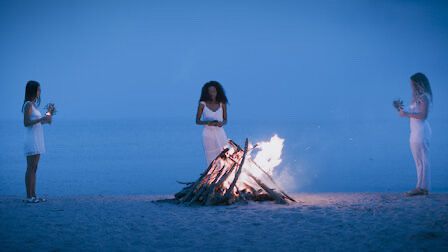
Nettles, the Maiden
In ASOIAF, the maiden represents innocence and chasity. Now, like all the other faces of the faith of the seven, the maiden is represented through various characters, with one of them being Nettles. With her upbringing being unknown, all that is known about Nettles’ childhood and sexual experience are speculations made based on her class, race and gender. She is not granted the privilege of innocence the noble women in Westeros are given.
Despite the authors of fire and blood, and the people in-universe accusing her of promiscuity, Nettles’ connection to the maiden has almost nothing to do with sex, but is rather an exploration of the war amongst the noble houses of Westeros, and the fault of legitimacy as it pertains to Targaryens.
The Claiming of Sheepstealer
According to the accounts in Fire and Blood, Nettles claims the wild-dragon Sheepstealer by feeding him freshly slaughtered sheep everyday until he came to accept her as his mount. In various cultures, religions and art pieces, sheep are used to represent innocence and purity. Sheep are also generally defenseless against harm, and are likely to die from panic if even frightened.
How this relates to Nettles and the maiden:
The account of the events we get in ASOIAF, always comes from nobility. We do not get the POV of anyone of low birth, but, we don’t need their POV to know that the smallfolk are always at the mercy of the people that rule over them. They are always the first and largest casualties in wars that are usually insignificant to them and their well-being. Nettles being of low birth means that she’s lived most of her life unprotected, and at risk of being a means to ends for the schemes of a lord or lady, or even a prince. Nettles being of low birth means that she’s a sheep in a realm ruled by dragons.
By becoming the rider of Sheepstealer, Nettles becomes exposed to life of the nobility in Westeros, in the most devastating way, war.
Nettles, the Mother
Motherhood in Westeros
The loss of innocence for the women of ASOIAF is usually synonymous with the loss of their virginity. Sex isn’t typically done for their pleasure, but rather the fulfilling of their marital duties by providing their husbands with an heir. Their value as women is based on their fertility, so a child sired in marriage is often the sole form of agency and protection women in Westeros get.
GRRM frequently uses metaphors to explore the loss of innocence, like Jaime being cut by Ser Arthur Dayne during his knighting, or Jaime witnessing the death of Brandon and Rickard Stark, or Sansa experiencing her first period, etc. For Nettles, her loss of innocence is written in a way that parallels the optics of motherhood in Westeros.
When Nettles claimed Sheepstealer, she was granted individuality. She is no longer a mere sheep in the field, she has an identity, the Unlikely Dragon-Rider. She is granted protection and value, much like the wives of the lords of Westeros are given, after providing their husbands with a son. When Rhaenyra calls for her head, Lord Mooton, Ser Florian, and Maester Norren all saw it as an unjustly request. If she hadn’t claimed Sheepstealer, if she still remained as a nameless, baseborn girl, she would’ve been killed, swiftly.
Nettles, the Crone
The Dance of the Dragons was the most deadly war fought in Westeros, as it was headlined by dragon-riders. Most of the participants wound up dead by the end of it, with their cause lost in grief. There are many events that led to the dance of the dragons, but at its core, it was a war fought over the legitimacy of House Targaryen. Nettles is one of the few people who survived it, and her dragon is one of the last to be seen or heard of before Daenerys Targaryen’s hatching of Rhaegal, Viserion and Drogon.
Masculinity and Legitimacy in Westeros
The conquest of Westeros by Aegon and his two sister-wives, Rhaenys and Visenya, was only possible with the dragons of Old Valyria. The legitimacy of the Targaryen dynasty relies on blood quantum,i.e.,having the blood of the dragon, and being able to ride one. All the Targaryen kings, from Aegon, straight down to Viserys, were dragon riders, and that played a part in their kingship.
Kings in Westeros are the ultimate male figures, followed by knights, maesters and lords. Looking at these archetypes and their specific roles,- kings and lords protect the realm, knights defend the innocent, maesters share their wisdom with youth-, Nettles fulfills all of them during the Dance.
The Black Ram
After the Dance, Nettles is worshipped as a fire witch by the mountain clans of the Vale. According to the accounts in fire and blood, the youths would bring her gifts and return as men with burns to show that they faced the dragon woman in her lair. Nettles in this instance is being used as a rite of passage and symbol of the loss of innocence, as well as wisdom, paralleling the relationship between her and Sheepstealer.
Through Sheepstealer she becomes a warrior and a protector of the realm, and she defends Rhaenyra’s claim like any knight would. Who best to act as a rite of passage but the woman who has played in every archetype they aspire to be?
Before her departure from Maidenpool, and one her last recorded appearances, Nettles feeds her dragon Sheepstealer, a black ram. She’d slit its throat herself, and the animal’s blood was said to have stained her leather clothing. The black ram is often associated with wisdom, discernment, sacrifice and guidance. In most cultures, it represents different gods and goddesses of war, fertility and royalty. She started her story as an innocent sheep, ignorant of the spoils of war, and ends as the black ram, the epitome of wisdom.
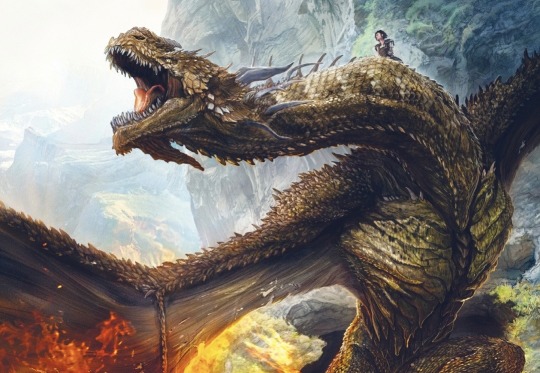
And to close: Nettles isn’t confirmed to be of royal blood, but she is embodiment of House Targaryen’s ideology of being gods amongst men.
#nettles f&b#asoiaf nettles#asoiaf#a song of ice and fire#nettles#nettles asoiaf#nettles and sheepstealer
59 notes
·
View notes